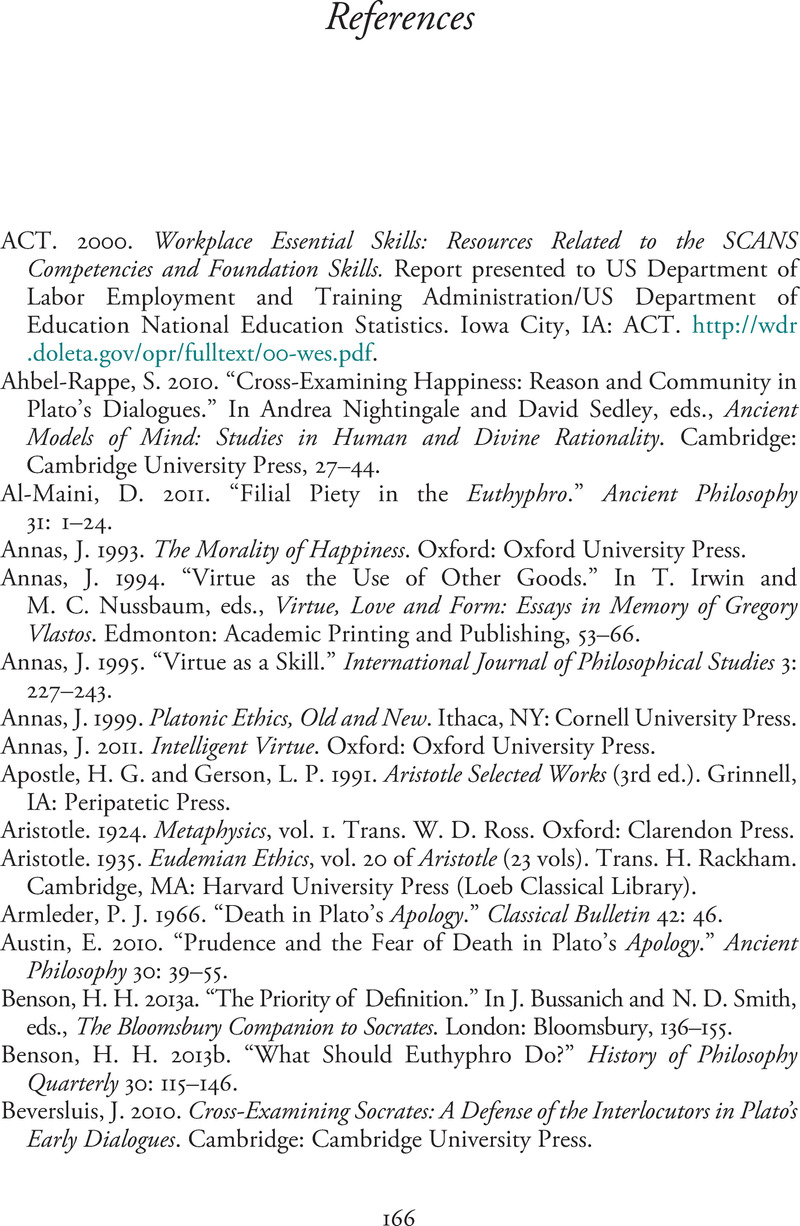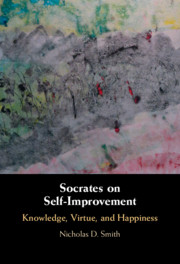Book contents
- Socrates on Self-Improvement
- Socrates on Self-Improvement
- Copyright page
- Contents
- Preface
- Chapter 1 Socrates as Exemplar
- Chapter 2 Socrates as Apprentice at Virtue
- Chapter 3 Socratic Motivational Intellectualism
- Chapter 4 Socratic Ignorance
- Chapter 5 Is Virtue Sufficient for Happiness?
- Chapter 6 The Necessity of Virtue for Happiness
- Afterword: Review and Assessment
- References
- Index of Passages
- General Index
- References
References
Published online by Cambridge University Press: 11 June 2021
- Socrates on Self-Improvement
- Socrates on Self-Improvement
- Copyright page
- Contents
- Preface
- Chapter 1 Socrates as Exemplar
- Chapter 2 Socrates as Apprentice at Virtue
- Chapter 3 Socratic Motivational Intellectualism
- Chapter 4 Socratic Ignorance
- Chapter 5 Is Virtue Sufficient for Happiness?
- Chapter 6 The Necessity of Virtue for Happiness
- Afterword: Review and Assessment
- References
- Index of Passages
- General Index
- References
Summary

- Type
- Chapter
- Information
- Socrates on Self-ImprovementKnowledge, Virtue, and Happiness, pp. 166 - 173Publisher: Cambridge University PressPrint publication year: 2021

